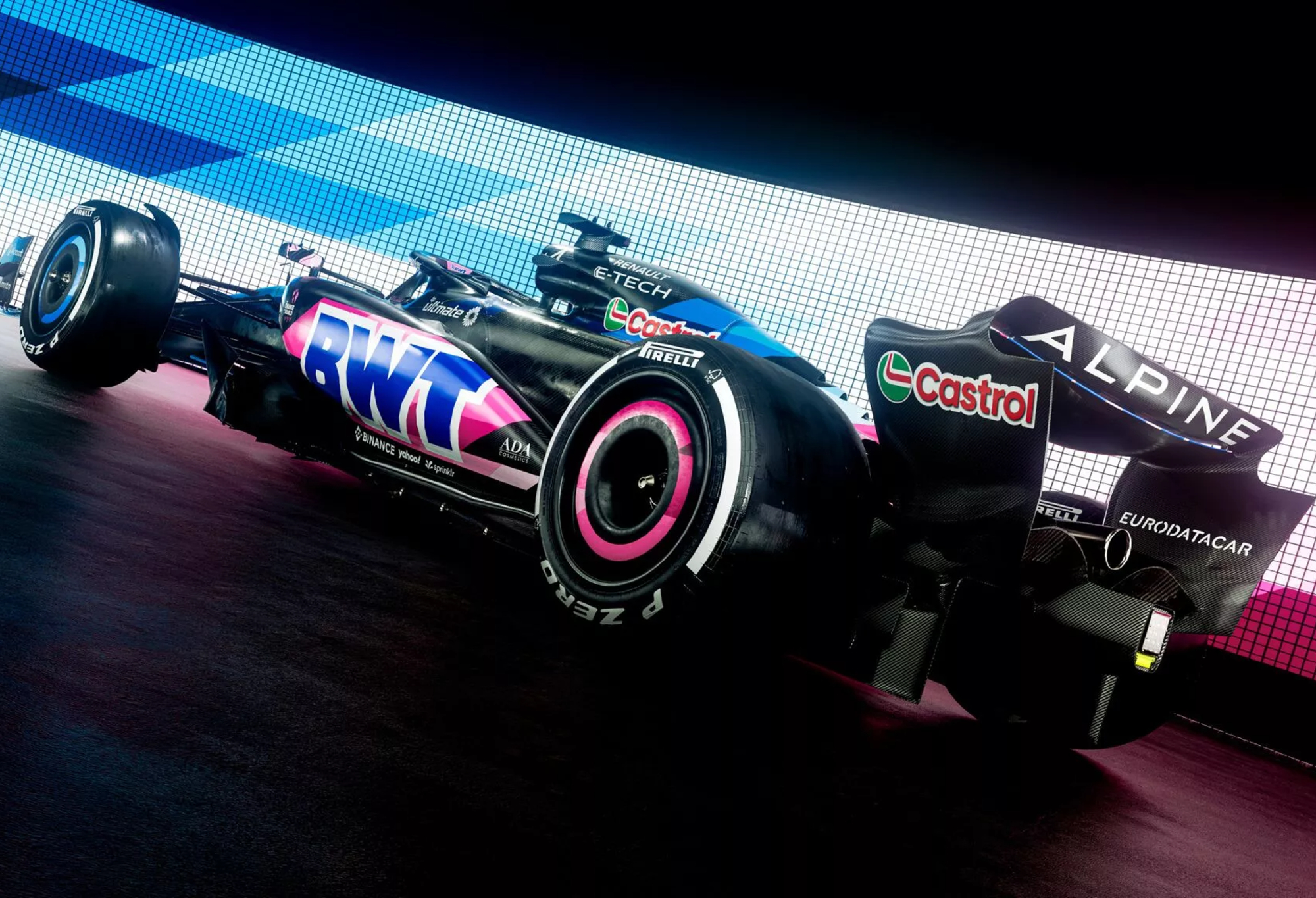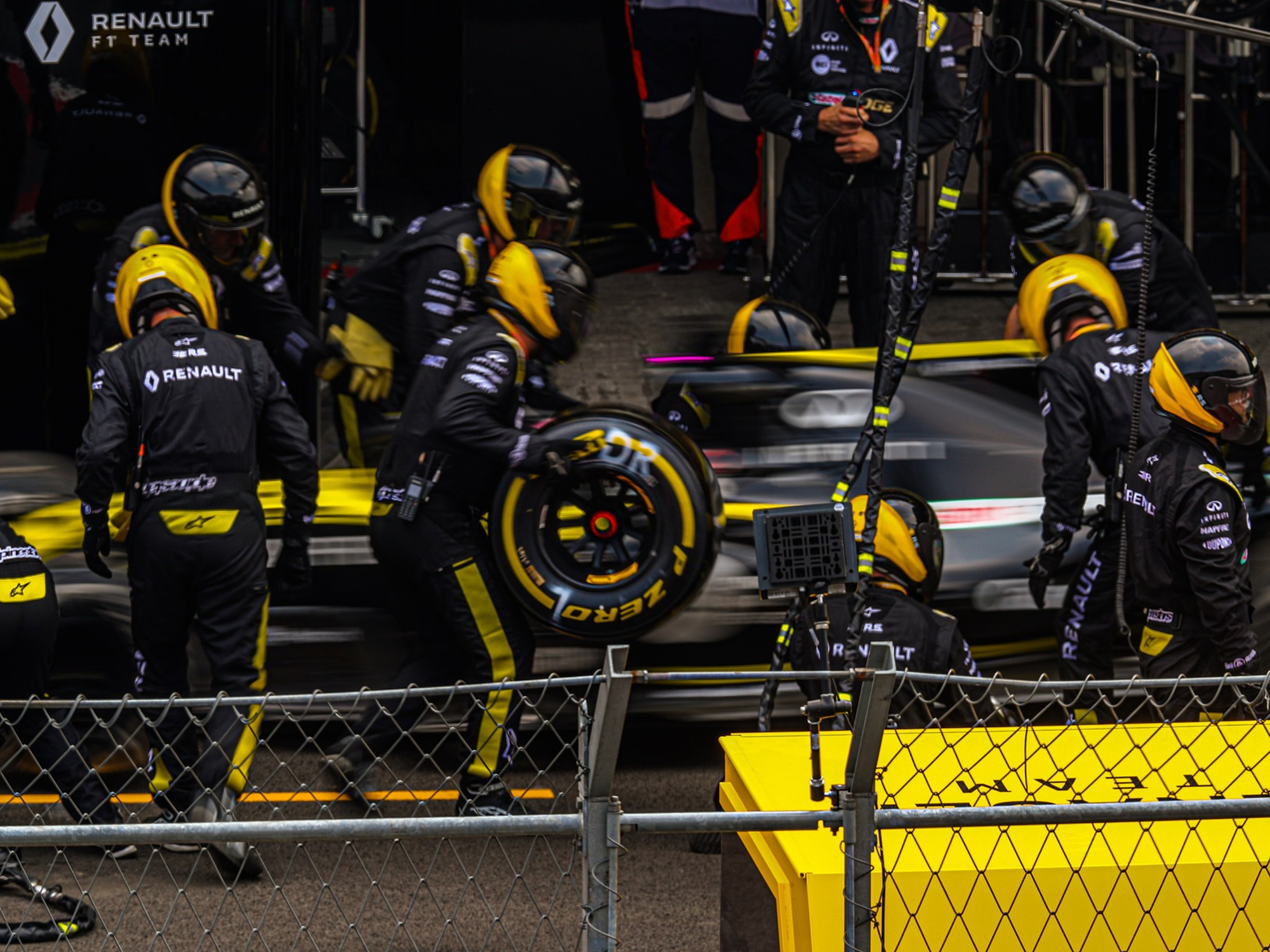
From season to season, the ten Formula 1 racing teams often switch sponsors and suppliers and sometimes even change their names. Some fans have wondered why Renault has no F1 team, but the team is still there but rebranded. Since 2021, Renault has been using the Alpine brand name. Additionally, for the 2024 F1 season, due to sponsorship changes, the official name is BWT Alpine F1 Team. Read on for more about Renault’s team changes, the reasons behind the changes, and how the team has fared.
Why a Renault F1 team matters: History

Renault has been part of Formula 1 racing since 1977, at various times as a constructor, engine supplier for other teams, and as an F1 racing team owner. Renault engines powered at least 160 Grand Prix winners during its history with the sport.
During those years, the Renault Group had organizational changes, some of which directly affected the F1 team. Renault fielded an F1 team from 1977 to 1985 when it left the sport at the end of the season. Renault supplied engines to Williams Racing and Benetton from 1989 to 1997.
In 2000, Renault took over Benetton Formula, the F1 team, which had continued to use Renault engines, and in 2002, it renamed itself the Renault team. In 2011, Renault sold its team interest, which it repurchased in 2016 when it again changed the team name to Renault.
Alpine – a dream brand

With a company-wide reorganization with a reported stronger focus on brands, Renault Group changed the F1 team name to Alpine (pronounced “Al-peen“) for the 2021 season to align the racing effort with the group’s Alpine racing-inspired sports car brand.
The switch came simultaneously when the FIA instituted F1 team budget caps so that Grand Prix racing wouldn’t devolve into competition measured by wallet size.
At the time, Renault Group CEO Luca de Meo said, “Alpine is a beautiful brand, powerful and vibrant, that brings a smile to the faces of its followers. By introducing Alpine, a symbol of French excellence, to the most prestigious of the world’s automotive disciplines, we are continuing the adventure of manufacturers in a renewed sport.”
BWT Alpine F1 Team

The BWT Alpine F1 Team introduced a new race car for 2024, the A524 Formula 1 car. This platform will be used for two seasons before the major changes in F1 cars starting with the 2026 season. Alpine also changed the team colors to combine the brand’s Alpine blue and title sponsor BWT’s pink.
Renault has not disappeared from Formula. The company uses a new name for its F1 team but expresses pride and confidence in its all-French drivers, Esteban Ocon and Pierre Gasly.
When the A524 Formula 1 car was introduced before the 2024 season, Alpine F1 Team Director of Communications Mario Almeida wrote about the Renault Group’s commitment to Formula 1 as a key part of Renaultlution under the Alpine brand.
Almedia wrote, “Motorsport is the core of Alpine’s DNA, and the brand’s commitment to racing is highlighted in the fact that it is the most involved of any car company in FIA racing categories, with presence in Formula 1, World Endurance, open-wheel racing, and rallying.”
Editors' Recommendations
- Formula 1 has a new subscription-free ad-supported streaming channel
- F1 helmet Niki Lauda wore in infamous crash will be auctioned for the first time
- How much do Formula 1 pit crew and mechanics make?
- How do you become a Formula 1 driver?
- How much does a Formula 1 car weigh?



